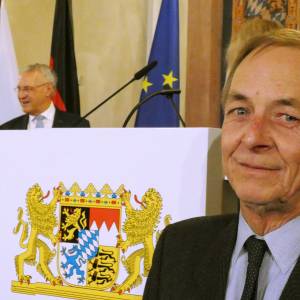Food for thought
The scene makes a very welcome change from the mass of maize however ultimately the result is the same - it will all end up producing "Bio-Gas" and while a renewable energy source and one of the alternatives to nuclear & fossil energy, it's not without it's environmental impact.
One can only see the sunflowers but there are a whole host of various plants in these fields, including peas, beans and other flowering plants. In Germany harvested as "GPS" (Ganz-Pflanzen-Silage) and "WPS" (Whole Plant Silage) in the UK, the whole plant is shredded and put in silage bins before ending up in the gas reactor. Not as efficient as pure maize in producing methane, it is better for the earth structure, needs less mineral fertilizer and less spraying. These "mixed" fields are usually sown after a year or two of maize.
One might think a large step forward for beekeepers but for the most part the honey season is long finished by the time these fields flowered. However it is a positive in general for wildlife and so to be encouraged for those who insist on using valuable food producing ground to keep our computers running and mobile phones charged.
(Aside - I rather liked the idea that out of work dogs for the blind could be used to guide mobile phone users on the streets of our towns and cities!)
Strange weather day with the promise of warmth and sunshine. Started out that way on our early morning walk but then the promised "Föhn" wind coming over the alps seemed to collapse, the moisture level shot up and by evening the thunderstorms arrived.

Comments New comments are not currently accepted on this journal.